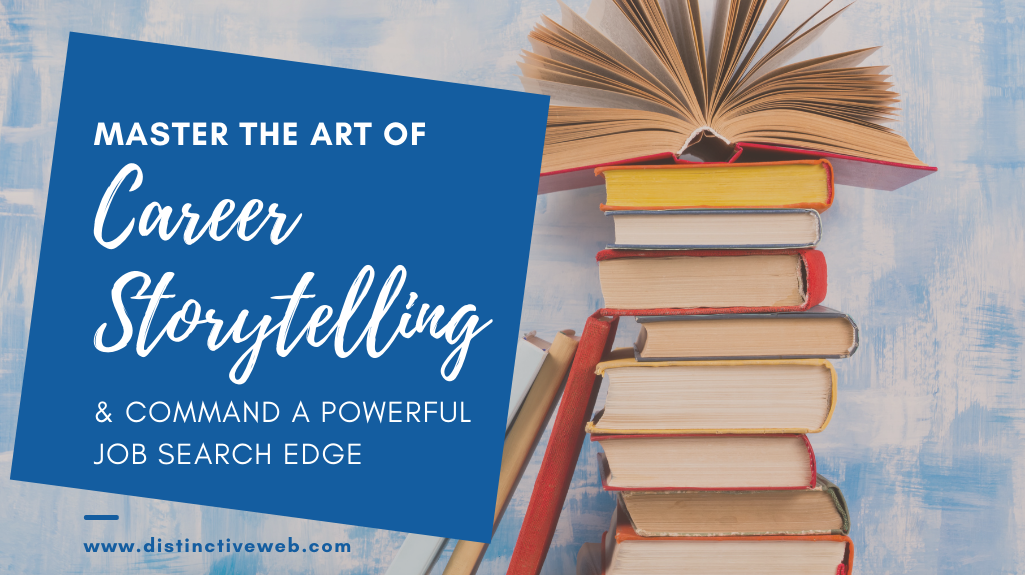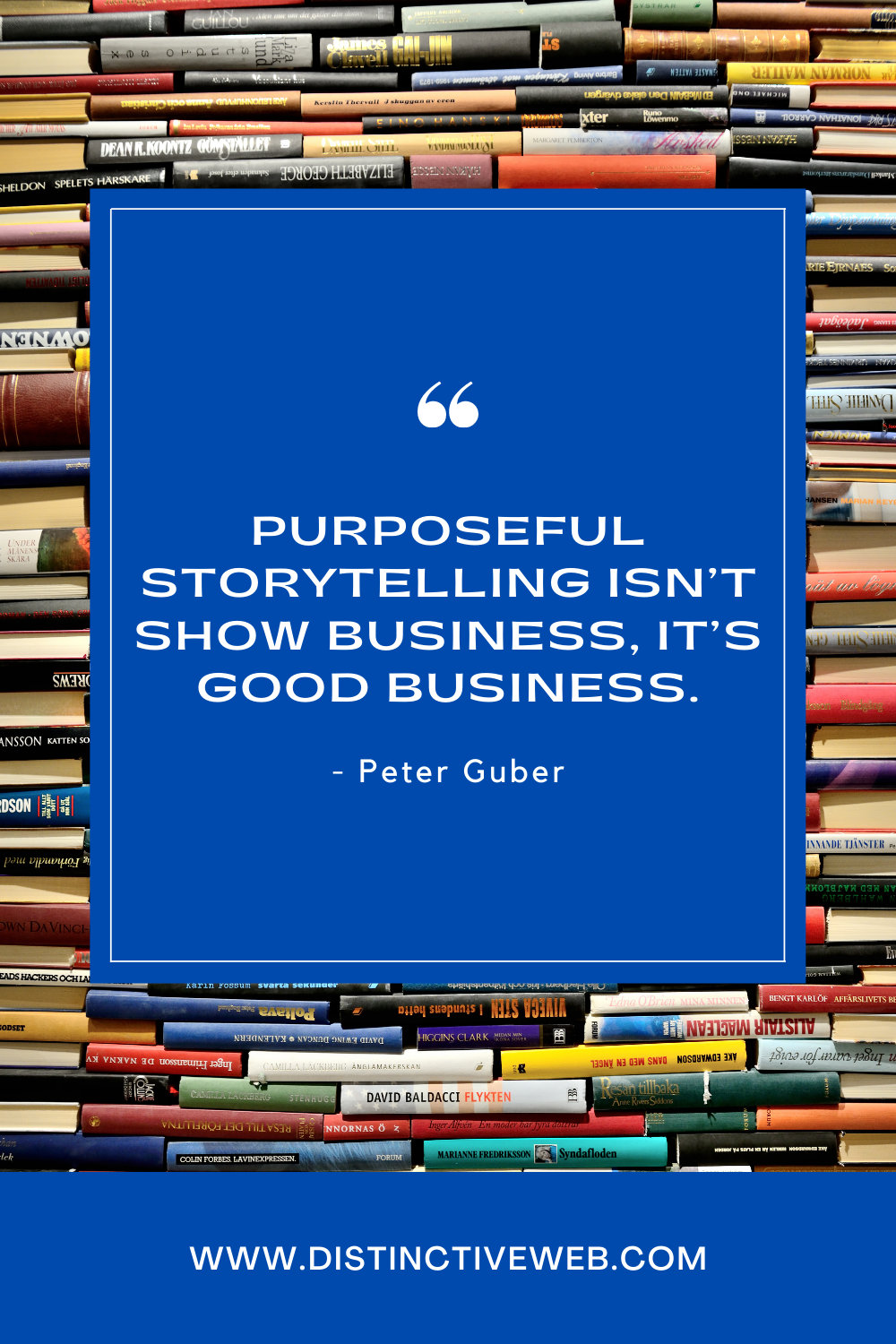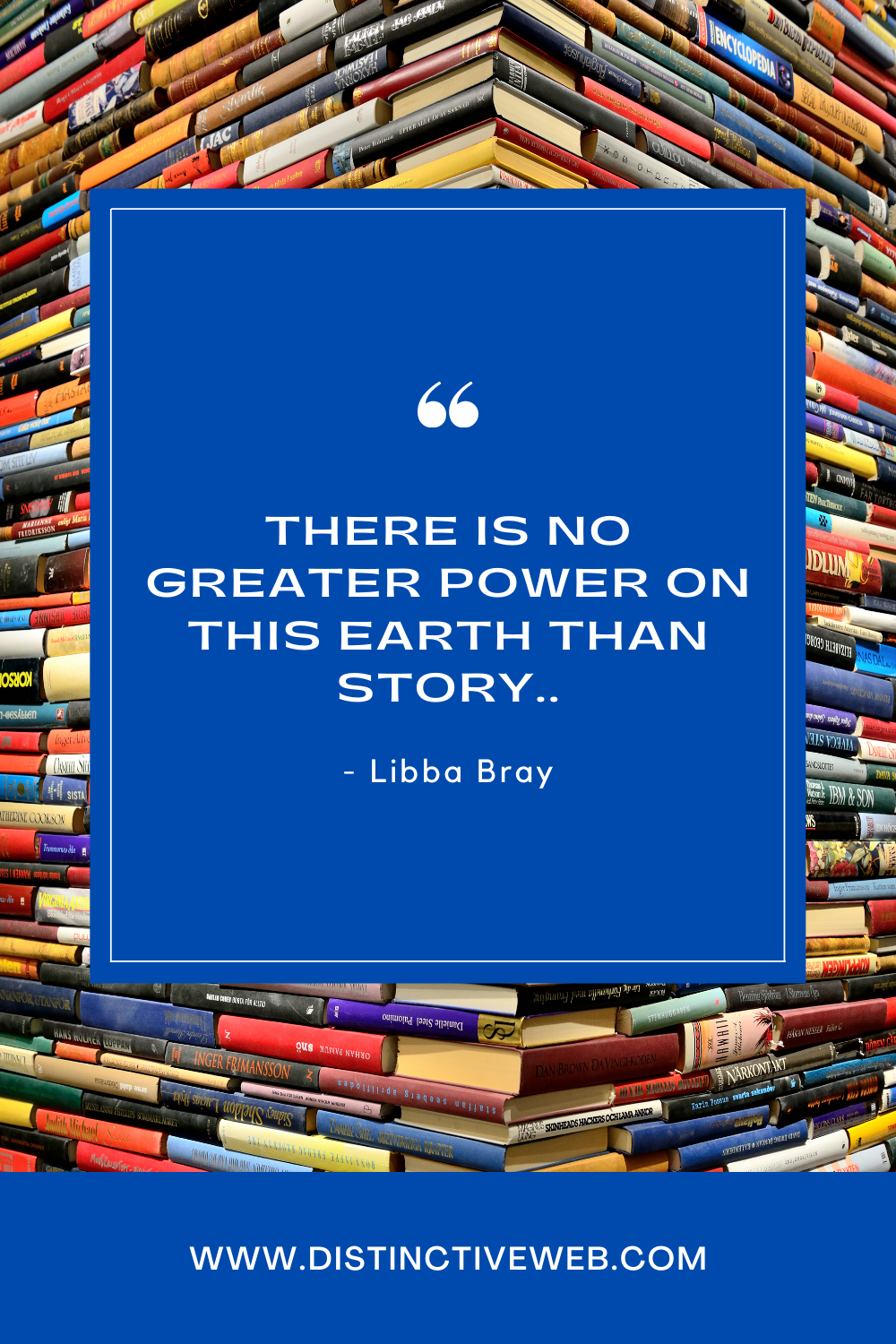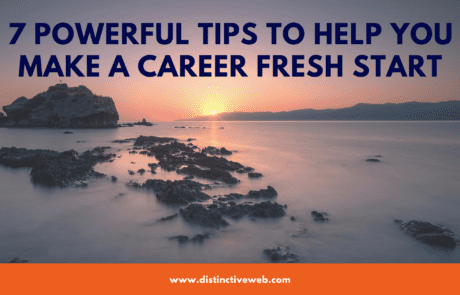
Career storytelling can be essential to the success of your job search.
Once upon a time…
No! Not that kind of storytelling.
In the context of a job search, the stories of professional success that you share—in your resume, your LinkedIn profile, your biography, in interviews, and when networking—help people to connect with you. They also help employers to learn the ways in which you can help them and add value to their company.
Storytelling – true storytelling – is all about connection.
It’s All About Connecting With Them
How do you connect? Here’s the big secret, straight up: Telling your story is never about the storyteller. It is ultimately all about your listener (or reader) – particularly those who will identify and relate to the tale. And that strong sense of identification and connection is why storytelling is such a powerful tool for job seekers.
Are you one of those people who struggle to come up with career “stories” to use in your resume or when talking with people about your career and job search?
Are you one of those who says, “I don’t really have a career story. My work is pretty boring” and then go on to talk about job responsibilities? Or do you throw out a bunch of undifferentiating biographical facts? “I earned my B.A. degree in marketing at the University of Southern Maine and began my career at Acme corporation as a marketing assistant…” Zzzzzzz
Or, maybe you make an effort and provide a laundry list of your achievements, expecting that alone to dazzle prospective employers enough to hire you?
The solution to this dilemma is to stop overthinking what you want to put in your story and focus on the why. Why should you include a particular accomplishment in your resume? Why should you skip providing another particular accomplishment?
Focusing On the Why of Your Career Story
Telling your career stories should be all about relevance. There is only one reason that your ideal prospective employer will take time out of a busy workday to read your story – to see how you can add value in some way to the company. In other words, to help her meet goals, solve problems, or hurdle challenges. She wants to know how you have added value in past situations similar to what she is struggling with right now.
From an employer’s perspective, how your story relates to her needs in her company is the only thing that is going to make her take notice and decide to call you for an interview and ultimately, hire you.
The first step is to put yourself in the shoes of the employer.
This is why it is so important to do your research as a job seeker. Research trends in the industry or industries you are targeting. Research the company you hope to work for. Research the person who would be your manager if hired. Research the person interviewing you. Google and LinkedIn make all this research easier than it has ever been.
The more you research, the easier it is to put yourself in the employer’s shoes.
Does she have the time or desire to read a long, rambling tale that details what you’ve been responsible for at every company you’ve worked for in your career? Of course not.
Does she even really care if you won the Top Sales Producer of the Year award at the company you worked for five years ago? I’m sorry, but again, no. At least, not unless your story helps her make the connection between that award and her current goal of increasing sales.
The employer wants the relevant details – the ones that hit her right in the gut and make her say, “Wow, this person has really been there and succeeded!”
To craft a powerful story that makes her feel this, you need to tell a story that hits her pain points and then goes a step beyond to show the value you have to offer in relation to those pain points
In the story of the sales award, it isn’t the award that matters. It is the value you added that led to that award. Maybe it is the fact that you helped your employer restart sales growth, reversing five years of sales declines. Or maybe it is the fact that you were able to open doors to new markets they’d been trying unsuccessfully to expand into for years until you came along.
Is the employer going through a major acquisitional growth phase and struggling with multiple disparate technology systems? Tell the story about you helped to consolidate and integrate the systems of three acquired companies for your current employer, retiring outdated legacy systems and integrating the rest into a single, streamlined, cost-efficient system within six weeks.
Is the employer struggling to return the company to profitability following an economic recession? Your story about how you turned losses into profits for your previous employer is likely to resonate.
9 Career Storytelling Tips
Career stories can be a powerful way to capture the attention of a prospective employer. Here are some tips:


In summary, the human brain is wired to be attracted to stories. This is because stories are how the human brain learns, grows, and remembers things.
Career storytelling is a powerful technique that you can use to stand out professionally, connect with your peers and employers, and be memorable.
Taking the time to thoughtfully craft and learn to tell your career stories is time invested in a skill that will pay great rewards not just in any current job search, but for the rest of your professional life. Get started practicing and perfecting your career storytelling skills today.

Frequently Asked Questions
What is career storytelling?
Career storytelling is the practice of sharing your professional experiences and achievements in a narrative format. It’s a way to connect with potential employers by showing how you’ve added value in past roles. This can be done through your resume, LinkedIn profile, interviews, and networking conversations.
Why is career storytelling important in a job search?
Career storytelling is important because it helps potential employers understand how you can add value to their company. By sharing stories of your past successes, you can show how you’ve solved problems or met goals similar to what the employer is currently facing. This can make you stand out from other candidates and increase your chances of getting hired.
How can I make my career story compelling?
To make your career story compelling, start with a “hook” that will catch the employer’s attention. Be clear about the purpose of your story and use vivid descriptions and strong words to paint a clear picture. Including numbers and statistics can also help illustrate your results. Remember to be authentic and consistent with your personal brand.
What is the CARS technique in career storytelling?
The CARS technique stands for Challenge, Action, Result, and Strategic Impact. It’s a format for telling your career story. Start by describing a challenge or problem you faced, then explain the actions you took to meet that challenge. Share the results to show that your solutions work, and finally, discuss the strategic impact to connect with the employer on an emotional level.
How can I keep my career story consistent across different mediums?
To keep your career story consistent, make sure the details and overarching message are the same whether you’re telling your story in your resume, LinkedIn profile, or in an interview. This helps establish credibility, trustworthiness, and memorability. However, you can adjust how you tell the story based on the medium and the audience.
How can I make my career story relevant to the employer?
To make your career story relevant, you need to understand the employer’s needs and challenges. Research the industry, the company, and the role you’re applying for. Then, tailor your story to show how your past experiences and achievements can help the employer meet their goals or solve their problems.
What should I avoid when telling my career story?
When telling your career story, avoid making it all about you. Remember, the goal is to show how you can solve the employer’s problems. Also, avoid being dishonest or exaggerating your achievements. Be confident, but always stay true to your experiences and skills.









